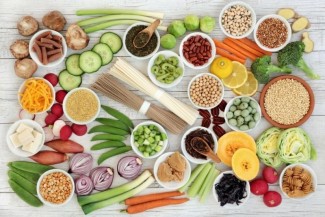
What Does Macrobiotics Mean?
Macrobiotics refers not just to a diet, but to a system of holistic principles that includes a nutrition plan, gentle exercise, and lifestyle changes. All are meant to create balance and vitality in life. Macrobiotics focuses on organic, locally grown, seasonal food, and elimination of artificial chemicals as ingredients. This no-chemical principle extends to home and personal hygiene products as well.
What a Macrobiotic Lifestyle Involves
General guidelines for the diet:
- 60% whole grains, such as brown rice, barley, oats and buckwheat
- 30% vegetables and pickles
- 10% beans, tofu, or sea vegetables
Vegetable oils, seasonings and condiments can be used daily just to add flavor. One to three times a week, you can consume small helpings of fruit and nuts.
You should eat only when you're hungry, and stop when you're full. You should also chew each mouthful a minimum of 50 times. The belief is that this allows maximum digestion of food.
Processed foods or foods with artificial colors, flavors or preservatives are not recommended.
You should also be mindful of your food preparation and cooking habits:
- Cook and store all your food in pots and containers made of wood, glass, stainless steel or ceramics.
- Avoid electric or microwave cooking.
- Prepare your food in a calm and peaceful environment - sing a happy song while you cook!
- Purify water before cooking with it or drinking it.
You should also only drink when thirsty. The only drinks that are generally accepted are water or unflavored teas that don't contain caffeine.
Macrobiotic Ingredients
Brown rice is the main macrobiotic food. Other important ingredients are miso soup and seasonal vegetables. Since macrobiotics is based on whole foods and a natural lifestyle, you can eat macrobiotically just by consuming organic produce. However, there's one ingredient that's popular for beginners who are looking to try macrobiotics but are nervous about giving up animal products - tempeh.
Tempeh is a fermented bean product with a dense consistency and texture. It's a great choice for people who have a hard time digesting plant-based high-protein foods like beans, legumes, or tofu. You can also try pastas that are made with non-wheat flour (e.g. brown rice flour). A variety of these can be found in the pasta aisle at our Down to Earth stores.
Plant-Based Macrobiotic Food Pyramid
